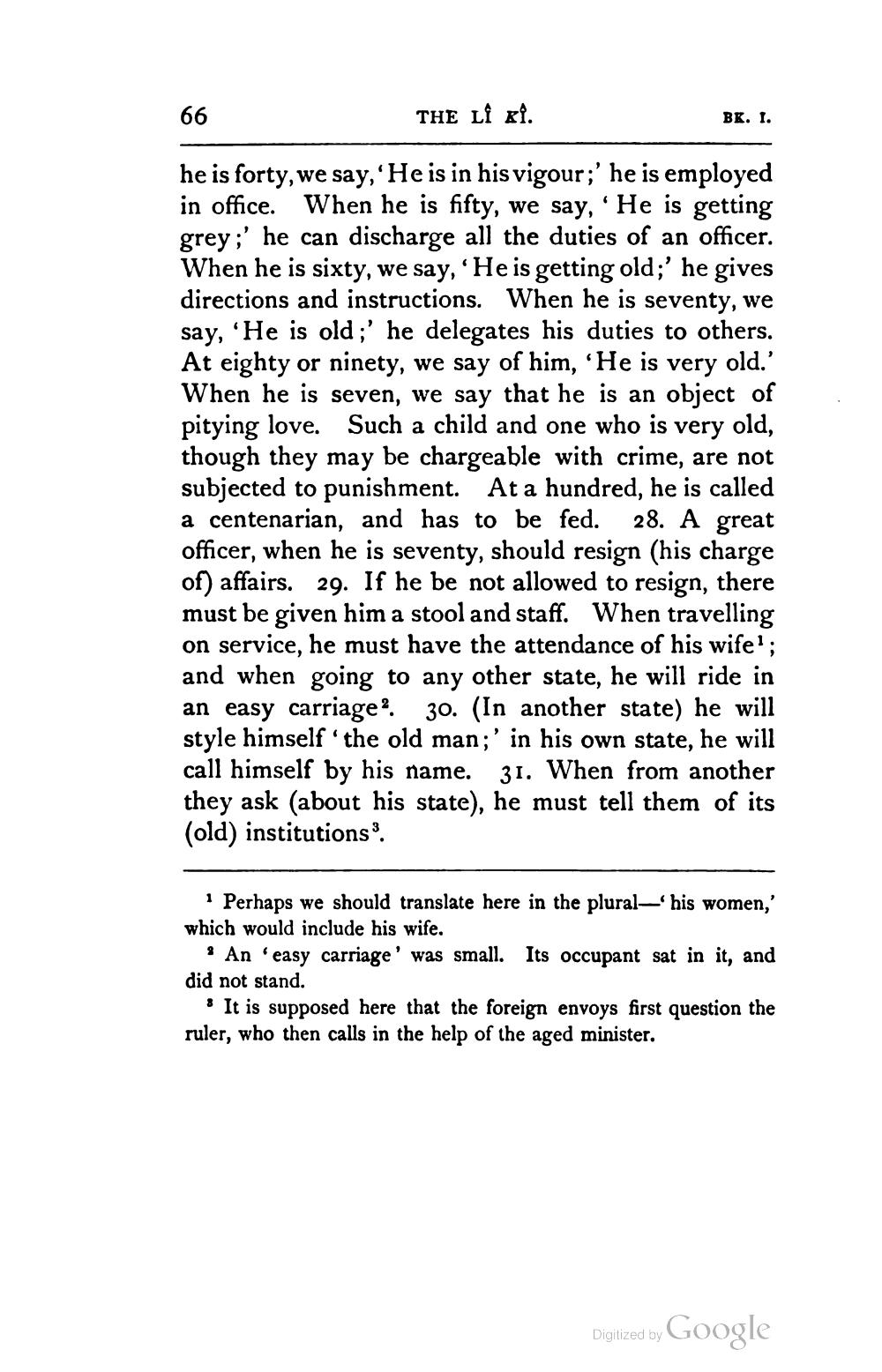________________
66
THE LI Kİ.
he is forty, we say, 'He is in his vigour;' he is employed in office. When he is fifty, we say, ' He is getting grey;' he can discharge all the duties of an officer. When he is sixty, we say, 'He is getting old;' he gives directions and instructions. When he is seventy, we say, 'He is old;' he delegates his duties to others. At eighty or ninety, we say of him, 'He is very old.' When he is seven, we say that he is an object of pitying love. Such a child and one who is very old, though they may be chargeable with crime, are not subjected to punishment. At a hundred, he is called a centenarian, and has to be fed. 28. A great officer, when he is seventy, should resign (his charge of) affairs. 29. If he be not allowed to resign, there must be given him a stool and staff. When travelling on service, he must have the attendance of his wife1; and when going to any other state, he will ride in an easy carriage. 30. (In another state) he will style himself 'the old man;' in his own state, he will call himself by his name. 31. When from another they ask (about his state), he must tell them of its (old) institutions3.
BK. I.
1 Perhaps we should translate here in the plural-' his women,' which would include his wife.
An easy carriage' was small. Its occupant sat in it, and did not stand.
It is supposed here that the foreign envoys first question the ruler, who then calls in the help of the aged minister.
Digitized by Google




